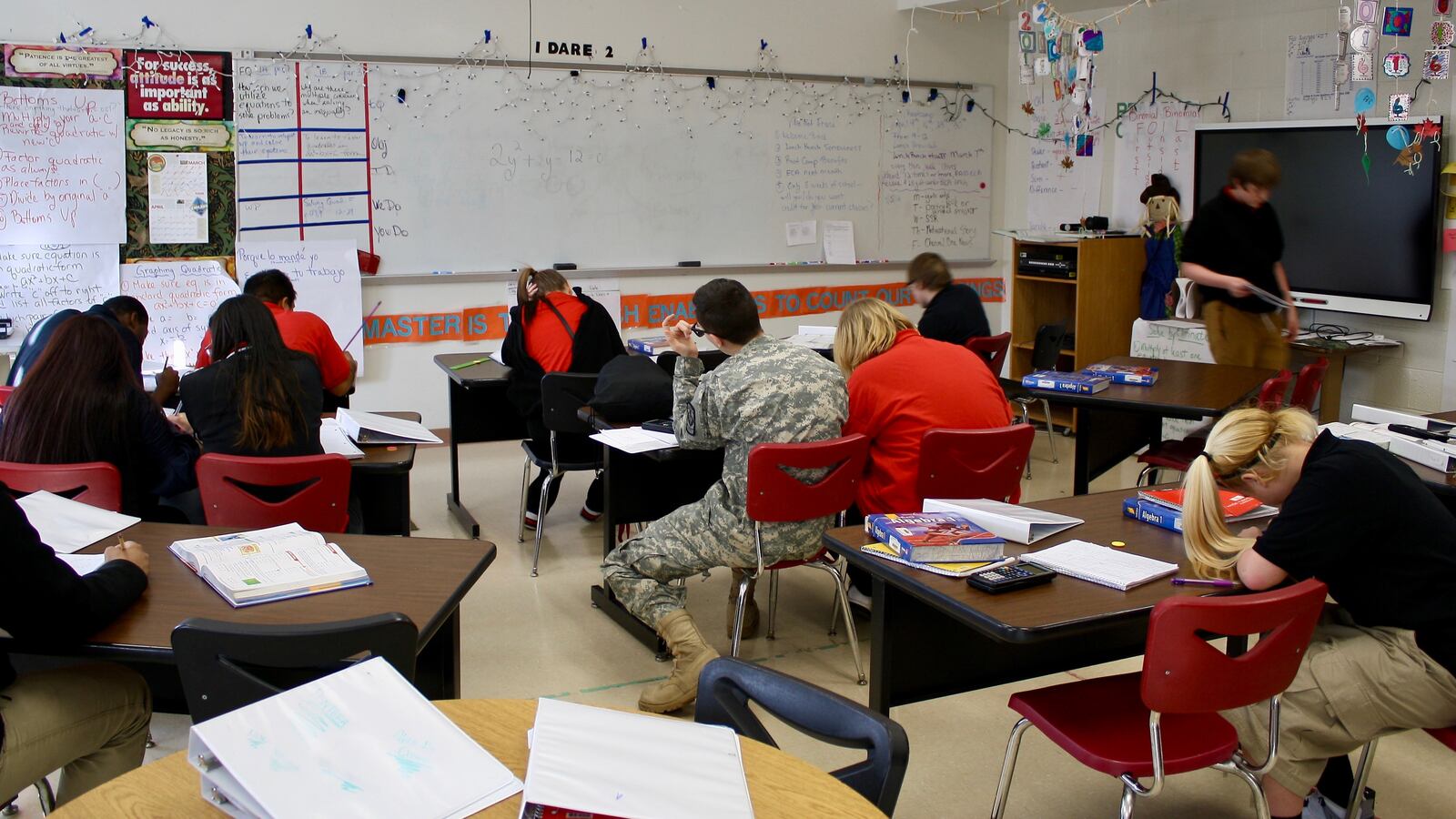A charter network that has overseen Howe and Manual high schools since they were taken over by the state seven years ago is one step closer to taking permanent control — a move that would prevent the schools’ closure but also prevents their return to the school district.
The Indiana State Board of Education approved a plan Wednesday for Charter Schools USA, which has managed the schools under a contract with the state, to seek charters to continue operating them. The plan passed the board 7 to 3 despite a last-ditch effort by Indianapolis Public Schools to push for a delay — and a new proposal for the district to oversee the schools.
Howe, which has about 600 students, and Manual, which has about 700, were chronically failing Indianapolis schools taken over by the state in 2012 in a radical step built on the promise that another manager would be able to turn the schools around. Both schools were handed over to CSUSA, a for-profit charter network based in Florida, which has produced mixed academic results. The state grade at Manual rose to a C, while Howe remains an F.
Seven years later, the board faced the question of what to do with the schools once the contracts expire in 2020. The options, constricted by state law, included closing the schools, handing management back to the district, or instructing CSUSA to seek charters for the schools. The board ultimately chose to support the CSUSA proposal to seek charters.
“This is a success story of how an organization can work productively in a transformation of three city schools,” said state board member David Freitas.
On Wednesday, Indianapolis Public Schools Interim Superintendent Aleesia Johnson floated a new idea: an innovation agreement, which would allow CSUSA to continue daily management under the oversight of the district. Previously, the Indianapolis Public Schools board approved a plan that called for closing the underused schools if they were returned to district control.
Johnson said the hybrid proposal would help resolve the thorny issues of transferring the buildings. “We believe in exploring an innovation network agreement, we could address some of those challenges.”
If CSUSA is able to get charters for the schools, it would open the possibility for them to use a controversial state law that requires districts to make unused buildings available to charter schools to rent or buy for $1.
Libby Cierzniak, a lobbyist for the district, raised several issues related to debt that Indianapolis Public Schools holds on the buildings.
Because of the way the debt is structured, the buildings are owned by a building corporation and the district is leasing them, Cierzniak said. Moreover, the tax-exempt status for bonds on Howe could be jeopardized if the school is taken over by a charter operator.
“There’s a number of factors we have to look at here,” Cierzniak said.
Nonetheless, the state board denied Indianapolis Public Schools’ request for a delay to address those issues.
Howe and Manual were among four chronically failing schools taken over by the state, but the future of the other two campuses is largely settled. Arlington High School was returned to Indianapolis Public Schools and eventually closed last year as part of a districtwide reconfiguration.
The fourth takeover school, Emma Donnan Middle School, is also managed by CSUSA. But the building also houses an elementary school opened as an innovation partnership with Indianapolis Public Schools. When that contract is renewed, the elementary school is expected to expand to eighth grade, allowing the school to continue under district oversight.
A task force created to assess the options and seek community input on the future of Howe and Manual recommended that CSUSA take permanent control of the schools. That recommendation was widely supported by alumni, neighbors, staff, parents, and students who weighed in, according to Charlie Schlegel, a consultant who oversaw the process.
Ahead of the state board vote Wednesday, several people advocated for keeping the schools under CSUSA’s management.
Tracy Garrett, a nursing supervisor for CSUSA, said her son chose to transfer to Howe from a private school. As a student at Howe, he feels like he belongs, he is happy to walk the halls, and he has goals for his future, she said. “He has blossomed into a whole different person.”
But others criticized the process, saying the only options they had were supporting CSUSA or closing the schools.
Aryn Schounce, a task force member representing neighborhoods on the south side, said that from the beginning the process was skewed to favor CSUSA keeping the schools.
“The general sense I got was that we would have to make do with the choices we had available to us even if we did not feel the process was fair, transparent, or listened to our concerns,” Schounce said.

